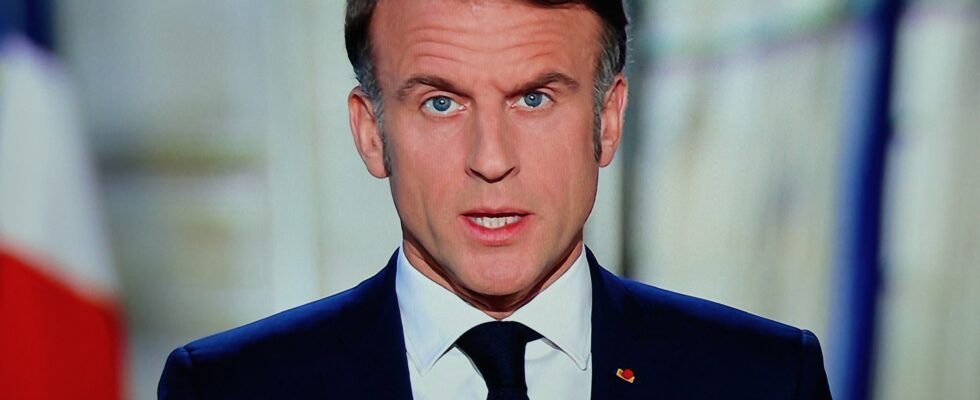It takes time for a man to recognize his wrongs. From this point of view, the attitude of the President of the Republic towards the dissolution of the National Assembly constitutes an ideal introduction to a manual on the psychology of error. We know from numerous cross-sources that Emmanuel Macron, even though the political ground was collapsing under his feet and therefore under ours too, continued to rejoice in the operation, even congratulating himself, according to The Worldof having “threw a grenade”.
Then, when it seemed obvious that the country was becoming ungovernable, even for the most zealous supporters of the presidential poker game, the Elysée advisors wanted to reassure: “Wait before judging: it is a decision which will appreciate from the perspective of History.” As it might take a little long, Emmanuel Macron finally spoke on this subject in December: “I am aware that this decision has been misunderstood.” In doing so, he gave the impression of being less in denial… but his analysis still seemed a little poor. Misunderstood? On the contrary, I believe that everyone perfectly understood the intentions behind this decision, as well as the winning political five-cushion move to which it was intended. Everyone understood perfectly well that the said decision was inconsistent.
Here we are at the December 31st greetings address. Inaugurated by a clip reminding us that great things were being done in France – which is not useless – the president only appears after two and a half minutes. Seriously, he recognizes with “humility” that the dissolution brought more harm than good. So that’s it? He finally admits he was wrong? Not really. On the one hand, he hastens to add a “for the moment” which gives his mea culpa the appearance of a provisional concession. On the other hand, he only mentions the negative consequences of the affair and not the intentions which governed it. In short, nothing to really blame him for since his intentions were good. This is the key to his reading of events.
A “fallacy of composition”
In doing so, he uses an argument of moral intimidation: I cannot be blamed for having given the people a voice again. It seems to me that this statement reveals the enigma of political proxemics that Emmanuel Macron will never have succeeded in solving. This sort of argumentum ad populum is, in fact, emblematic of the ghost that haunted his two mandates. Without falling prey to the intellectual ridicule of those who seek to psychiatrize him, everyone who has approached him knows his power of seduction. He’s an intelligent and charming man, and yet the magic doesn’t really happen outside of interpersonal relationships. One of Emmanuel Macron’s blunders was to believe that he could seduce the French as he was able to seduce on the ground “face to face”. There is an error of scale here which could be compared to what John Stuart Mill called a “fallacy of composition” which consists of considering a term in its distributive form in the premises and collective in its conclusion.
His desire to constantly find ad hoc mechanisms to establish a direct link with the “people of France” was manifested both by the great national debate, the citizens’ committees which were more eager to bring together than to listen, only by the number of his speeches on television – unrivaled in the Fifth Republic… The president tirelessly sought to seduce France as if it were a single coherent body. He is not the only one to make the mistake of hypostatizing the nation. You just have to listen to the commentators on election nights trying to understand “what the French wanted to say”. We are mistaken when we want proof of love from a body that does not have a unified spirit. And everyone understood that Emmanuel Macron had not left this tropism when he punctuated the end of his speech with a referendum hypothesis. This is one of the only margins of maneuver he has left. Article 11 of the Constitution must still allow him to try to speak to the people once again.
* Gérald Bronner is a sociologist and professor at La Sorbonne University.
.
